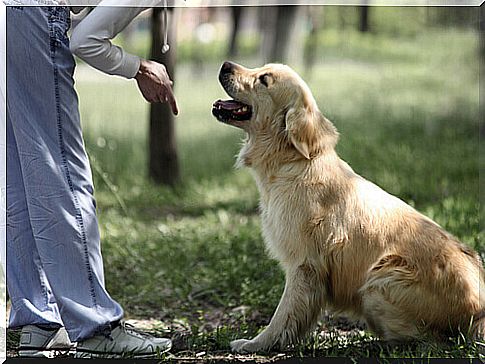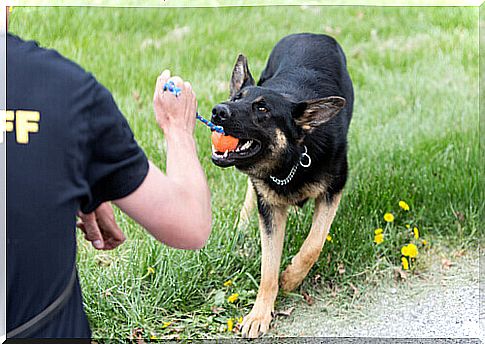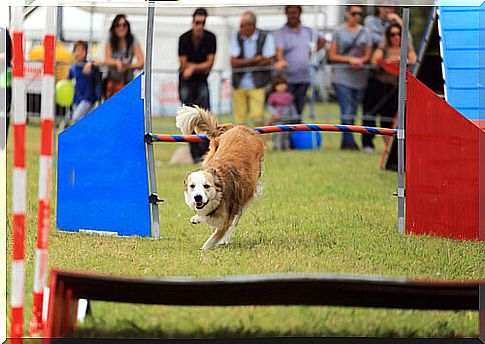10 Rules For Training Your Pet

When a dog comes into your life – be it a puppy or an adult dog – you should know that among your responsibilities is to educate him. With patience, clear rules and lots of love, you will certainly be able to train your pet successfully.
Issues you should consider when training your pet
The first thing you should know is that it is never too early or too late to train your pet.
A puppy can begin to learn some basic rules as early as his few weeks of life. And for an adult animal it is always time to assimilate new things.
Next, we ‘ll give you 10 basic rules that you should consider when looking at training your furry.
Educating your pet, with patience and a lot of love, is one of the many responsibilities you acquire when you decide to incorporate a dog as an extra member of your family.
I- Patience

If you think your dog will learn everything at once, you are very wrong. Going little by little and step by step is the key to success. Teach the rules to your furry one by one. If you lose patience, you won’t achieve your goals.
II- Perseverance
Surely you will have to repeat what you want to teach your furry man several times. And don’t be discouraged if he takes a long time to learn what you ask him to do or if he still does something wrong. Keep your steadfastness and perseverance and you will certainly reach your goal.
III- Clarity
In order for your dog to understand what you want to convey to him, you must give clear and precise orders, using few words and which, in turn, are short. For example:
- Come;
- Sit down;
- Lie down;
- Still.
IV- Coherence
Don’t change the rules of the game with your furry one, because you’ll just confuse him with that. Always use the same terms for the same order. Also, remember that what you allowed your dog to do today, you cannot ban tomorrow. And vice versa. Don’t drive him crazy.
V- Coordination
Before starting your pet’s education, make an agreement with the rest of the family that they all use the same words for a certain order.
Also determine what will be allowed and prohibited so that your pet does not undergo changes in education from one person to another or over time.
VI- Reward
Use Positive Reinforcement to educate your dog. Try to ignore what he does wrong and reward his successes with flattery, caressing, and every once in a while, a treat to your liking. You will see how, little by little, you will achieve your goals.
VII- No punishment
Punishing your dog for taking too long to learn is not a valid option. He will certainly not understand the reason for his irritation and with that you will only make him become a fearful and confused animal. Remember rule number I and don’t lose your temper. With violence nothing good can be achieved.
VIII- Face the training with peace of mind
To get good results when training your pet, the ideal is to create a playful and relaxed environment. If you transmit tension to your furry, it is certain that you will get very little or nothing. You must tackle the task in a relaxed and fun environment. By playing he will learn much easier and faster. Be sure of that.
IX- Avoid humanizing your pet
Never forget that as much as you love your pet, it is not a human being. He is a dog. Respect the particularities of your species and don’t expect him to behave like a person, because he’s a dog. So face up to your training without ever losing sight of this little detail.
X- Liability

Training your pet in at least the basic rules of behavior is one of the responsibilities you should take on when you choose to share your life with a furry.
This is something you will have to commit to from the very first moment. So, get deeply involved in this task and ask the veterinarian for advice in case of any doubts that arise.
An extra piece of advice to face the education of your furry
Lastly, the most important. Undertake the education of your dog with great care. Training him correctly is one more way to show how much you love him.
An animal that feels loved will certainly learn much better and faster. And, no doubt, he will know how to reward your loving dedication with even more affection.









